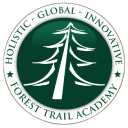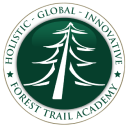Table of Contents
What Do Kids Learn in Kindergarten? A Guide for Parents
Kindergarten marks a major milestone in every child’s educational journey. It’s the first formal step into the world of academics, social development, and independent thinking. But for many parents, one question stands out: what do kids learn in kindergarten? Whether you’re considering enrolling your child in a traditional classroom or exploring an online kindergarten curriculum like ours at Forest Trail Academy, understanding what’s covered in kindergarten is essential for setting the right expectations.
In this post, we’ll explore the key subjects, skills, and kindergarten learning objectives your child is likely to encounter in their first official year of schooling.
What Do Kids Learn in Kindergarten?
At Forest Trail Academy, our online elementary school curriculum is aligned with state and national standards, and kindergarten is no exception. It combines academic instruction, social-emotional development, and foundational skills in a flexible, self-paced online format.
Let’s break down what children typically learn in kindergarten across major subjects and developmental areas.
1. Language Arts and Literacy
Reading and writing are two of the most important components of kindergarten. Students begin learning how letters form sounds, sounds from words, and words form sentences. By the end of the year, most students should be able to:
- Recognize all uppercase and lowercase letters
- Identify letter sounds (phonics)
- Read simple sight words
- Understand basic sentence structure
- Retell simple stories with beginning, middle, and end
- Write their own name and simple sentences
These milestones are a crucial part of the kindergarten learning objectives in language arts and help lay the groundwork for future reading fluency.
2. Mathematics
Math in kindergarten is all about developing number sense and basic operations. Children will learn:
- Number recognition and counting (1–100)
- Simple addition and subtraction
- Sorting and classifying objects
- Recognizing patterns and shapes
- Understanding concepts of time and measurement
- Using visual aids like number lines and manipulatives
In an online kindergarten curriculum, these concepts are often introduced through engaging digital activities, games, and real-world problem-solving scenarios.
3. Science
Kindergarteners are naturally curious, making science one of the most exciting subjects for them. At this level, science focuses on observation and exploration. Students may study:
- Weather patterns and seasons
- Plant and animal life cycles
- The five senses
- Basic earth science (soil, rocks, water)
- Simple experiments (making predictions and observations)
We incorporate visual learning, interactive lessons, and hands-on projects in our secular homeschool curriculum to make science fun and accessible.
4. Social Studies
This subject introduces children to the concept of community, citizenship, and the world around them. Kindergarten students will learn:
- About themselves and their families
- How to be a good friend and classroom citizen
- Basic geography (maps, globes, landforms)
- National holidays and symbols (e.g., the American flag)
- Roles of community helpers (police officers, firefighters, etc.)
These lessons help build a sense of identity and social awareness.
5. Social and Emotional Development
One of the often-overlooked expectations for kindergarten is emotional intelligence. While academics are important, learning how to interact with others, manage emotions, and follow routines is equally vital. Children are taught:
- How to share and take turns
- How to express feelings in appropriate ways
- Problem-solving strategies
- Conflict resolution
- Respecting others’ space and belongings
Social-emotional learning is built into daily lessons and reinforced through activities, especially in an asynchronous environment like ours.
Kindergarten Learning Objectives: What You Should Expect
The kindergarten learning objectives cover both academic and personal development. Here’s what most schools—including Forest Trail Academy—expect students to achieve by the end of kindergarten:
| Subject Area | Core Objectives |
| Reading | Identify letters, decode simple words, read sight words |
| Writing | Write their name, form basic sentences |
| Math | Count to 100, understand addition/subtraction |
| Science | Make observations, understand basic weather and life science |
| Social Studies | Identify roles in community, understand rules and fairness |
| Social Skills | Cooperate, listen, share, follow directions |
Understanding these expectations for kindergarten helps parents support learning at home and track progress effectively.
Kindergarten Rules and Routines
In addition to academic goals, students also learn kindergarten rules that help them function within a classroom (even virtual ones). These include:
- Raising hands before speaking
- Listening while others talk
- Following directions the first time
- Keeping hands and feet to yourself
- Cleaning up after activities
At Forest Trail Academy, we also help students develop a daily routine that encourages independence. For example, they may be guided to:
- Check their daily schedule
- Log in to their student dashboard
- Complete lessons and submit assignments
- Review feedback from their teacher
Even in a virtual setting, structure is key to a successful kindergarten experience.
Kindergarten at Forest Trail Academy: A Flexible Online Option
Many families choose Forest Trail Academy for its online kindergarten curriculum because of the flexibility it provides. Our self-paced, asynchronous learning environment allows students to work at their own speed, revisit lessons, and learn in a way that best suits their style.
Parents love our platform because:
- They can monitor progress easily through the parent portal
- Children receive individual attention from certified teachers
- Lessons are engaging and built for young learners
- The curriculum aligns with both Christian homeschool curriculum and secular homeschool curriculum standards, depending on your preference
We support students from all over the U.S. and even internationally.
How to Prepare Your Child for Kindergarten
Before jumping into formal lessons, it’s helpful to prepare your child for what’s ahead. Here are a few tips:
- Read together daily – Build early literacy skills by reading a variety of books.
- Practice independence – Encourage them to dress themselves, use the bathroom independently, and clean up after play.
- Teach basic routines – Practice following directions and completing simple tasks.
- Work on fine motor skills – Activities like coloring, cutting with scissors, and tracing letters can be incredibly beneficial.
- Introduce the idea of rules – Talk about classroom behavior, using examples of kindergarten rules.
Got Questions About Online Kindergarten?
At Forest Trail Academy, we’re here to help every step of the way—from enrollment to graduation. Whether you’re interested in a Christian homeschool curriculum, a secular homeschool curriculum, or a blend of both, we offer a flexible, fully accredited program tailored to your child’s needs.
Got questions about our Online School?
Let us know if you have any questions about online schooling. We’re here to assist you.
Call us at 561-537-5501
Email us at support@foresttrailacademy.com
Or submit an inquiry to our admissions team here
Laying the Groundwork for Lifelong Learning
So, what do kids learn in kindergarten? The answer is: a lot! From basic literacy and math skills to social-emotional development and understanding community, kindergarten provides a well-rounded foundation for a lifetime of learning.
Whether you’re transitioning from preschool or entering formal education for the first time, Forest Trail Academy’s online kindergarten curriculum is designed to meet your child’s individual needs. By understanding the kindergarten learning objectives and setting clear expectations for kindergarten, you can make this transition smooth, fun, and rewarding.

